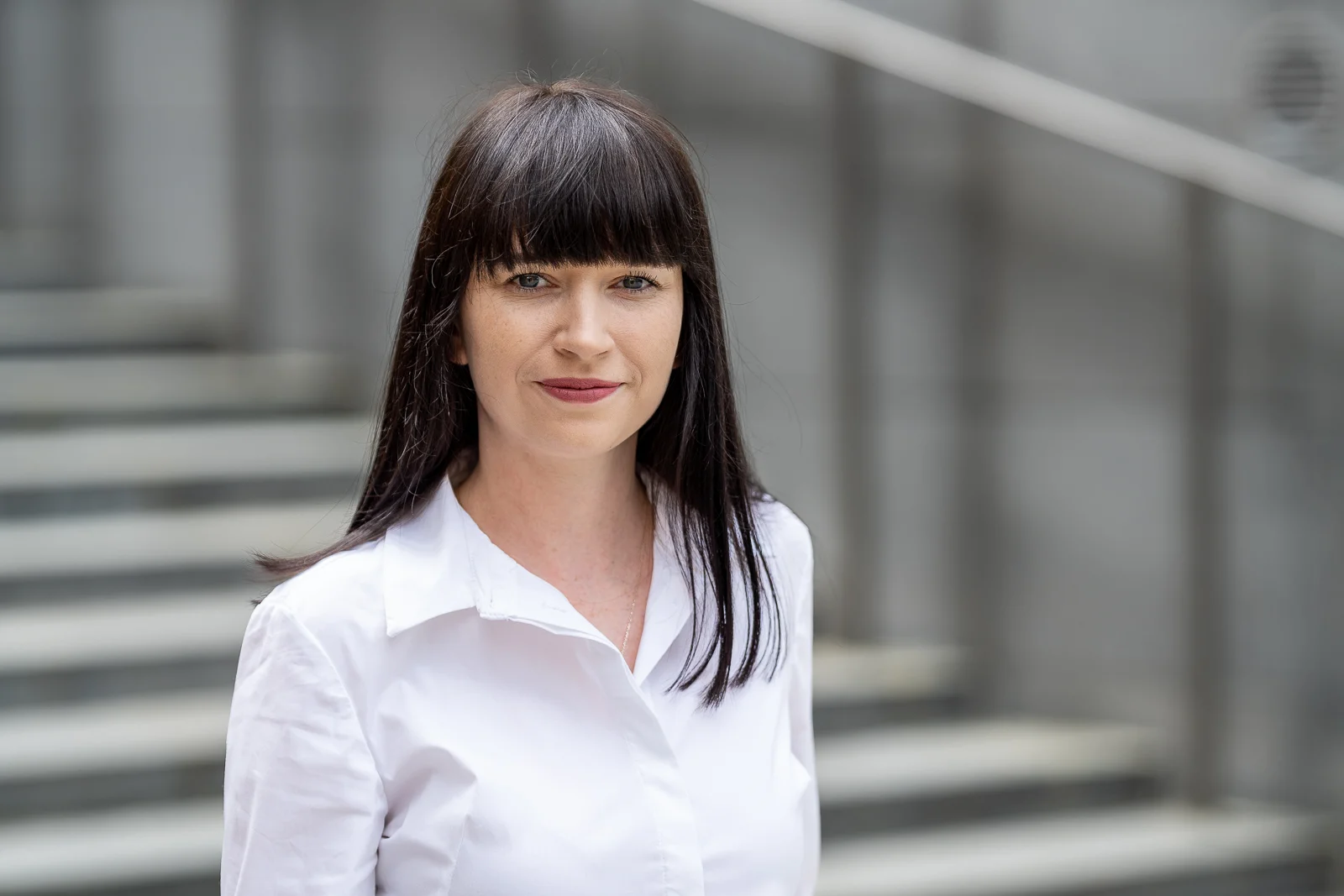
Science in the fight for human life
Dr Natalia Porębska, assistant professor in the Department of Protein Engineering at the Faculty of Biotechnology, University of Wrocław, is one of three people from UWr who have been awarded prestigious scholarships from the Foundation for Polish Science’s START 2023 programme.
We encourage you to read an interview with dr Natalia Porębska in which she introduced us to the topic of her research.
What are you working on?
Dr Natalia Porębska: – The topics of my research are related to cancer and, more specifically, to the development of new protein drug carriers that could find application in targeted cancer therapy.
What is targeted therapy?
– Unlike conventional chemotherapy, the task of targeted therapy is to precisely deliver cytotoxic drugs to cancer cells while bypassing healthy cells. This approach has the advantage of minimising the side effects of the therapy.
How to minimise side effects?
– This takes advantage of the presence of specific receptors on the surface of cancer cells, which are ‘targeted’ with cytotoxic conjugates, i.e. protein molecules to which highly toxic anticancer drugs are attached. The function of the protein carriers is to recognise a specific receptor on the surface of the cancer cell and then penetrate via this receptor into the cell, where the drug molecule is released.
Carrier research has been ongoing for many years.
– Yes, although targeted therapy with cytotoxic conjugates is currently one of the most promising cancer treatment strategies, developing effective drug carriers is still a major challenge for modern medicine.
What do you focus on in your research?
– On receptors belonging to the receptor family with tyrosine kinase (RTK) activity, which are a large group of proteins that regulate key cellular processes. RTK receptors are abundant on the cell surface of many cancers, making them an attractive molecular target.
What determines the effectiveness of targeted therapy?
– It largely depends on the selective and efficient penetration of the conjugate into the tumour cell. In a previous project carried out under the supervision of dr Łukasz Opaliński, prof. UWr, as part of a First Team grant from the Foundation for Polish Science, I developed a novel system for generating oligomeric ligands with differentiated architecture. These molecules targeted the FGFR1 receptor, whose increased expression is observed in lung, breast, prostate and ovarian cancers. The oligomeric proteins penetrated very efficiently into cells having the FGFR1 receptor on their surface, suggesting that they could be used as carriers for cytotoxic drugs.
This has shed new light on the research?
– Yes, based on these, I developed a cytotoxic conjugate that showed high toxicity against tumour cells overproducing FGFR1. I am currently further developing the research topic I have undertaken within the framework of the funding obtained in the PRELUDIUM 21 competition. In this project, I focus on the HER-2 receptor, which is considered one of the main oncogenic factors in breast cancer.
Breast cancer is the most common malignancy in women…
– Of all diagnosed cases, approximately 20 per cent are breast tumours characterised by overexpression of the HER2 receptor. Unfortunately, this receptor has poor penetration into cells, so new strategies to increase the efficiency of this process are desirable. The aim of my current research is therefore to develop an oligomeric cytotoxic conjugate that, by cross-linking the HER2 receptor into larger complexes on the cell surface, will enable efficient penetration of the drug into tumour cells. An additional advantage of the developed conjugate will be its fluorescence, which will enable imaging of the conjugate’s work at the molecular level in cancer cells.
Why do you have such an interest in this particular area of science?
– Cancer is now one of the leading causes of death worldwide. They rank second in the statistics, just after cardiovascular disease, so there is a great need to develop new, more effective therapies. Targeted therapy is a rapidly developing field of science that appears to hold great promise for the treatment of many cancers.
****Prestigious scholarships from the Foundation for Polish Science programme START 2023 were also awarded to Marzena Pander from the Faculty of Chemistry and Michał Stefańczyk from the Faculty of Historical and Pedagogical Sciences.
Interviewed: Katarzyna Górowicz-Maćkiewicz.



